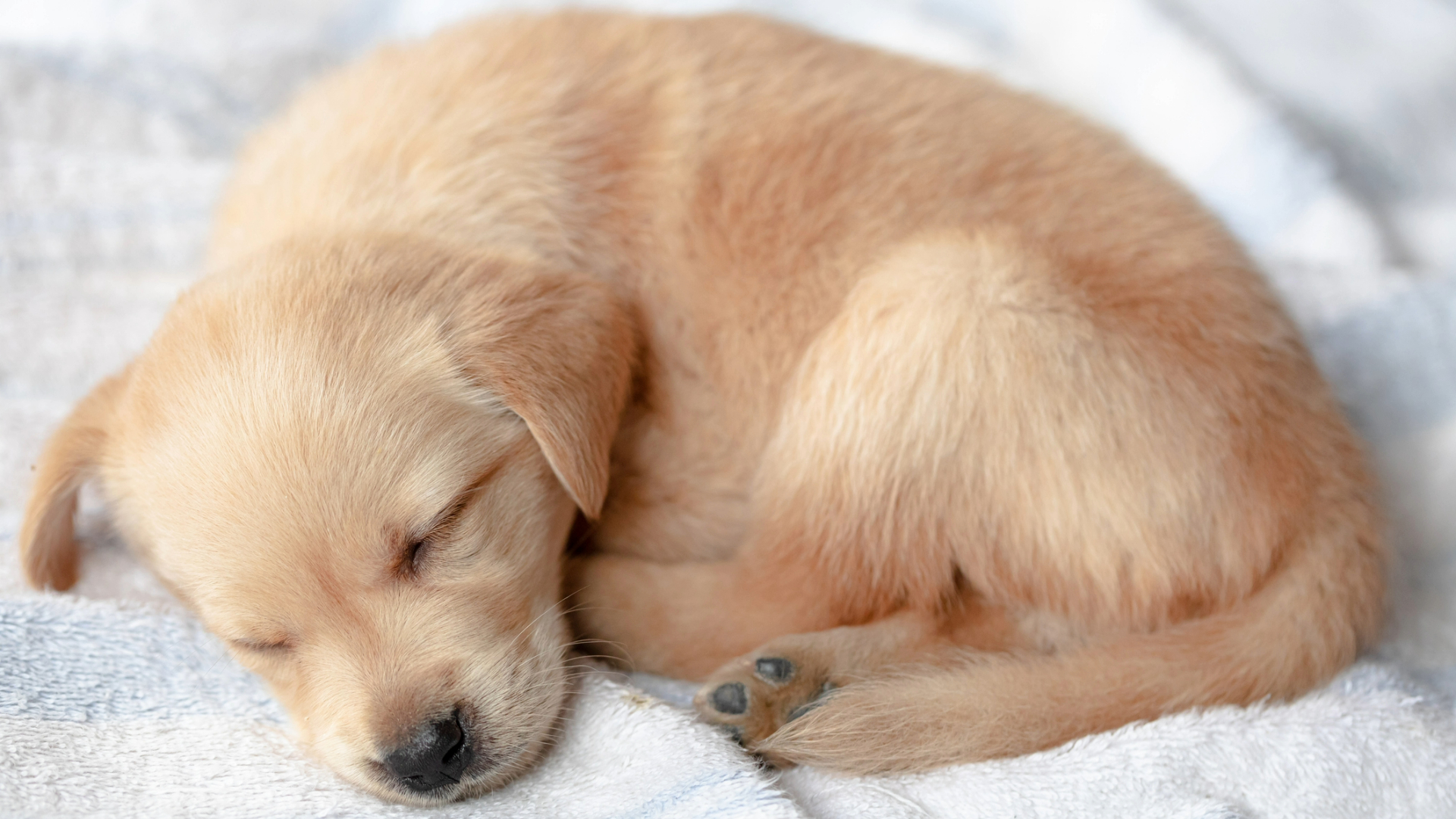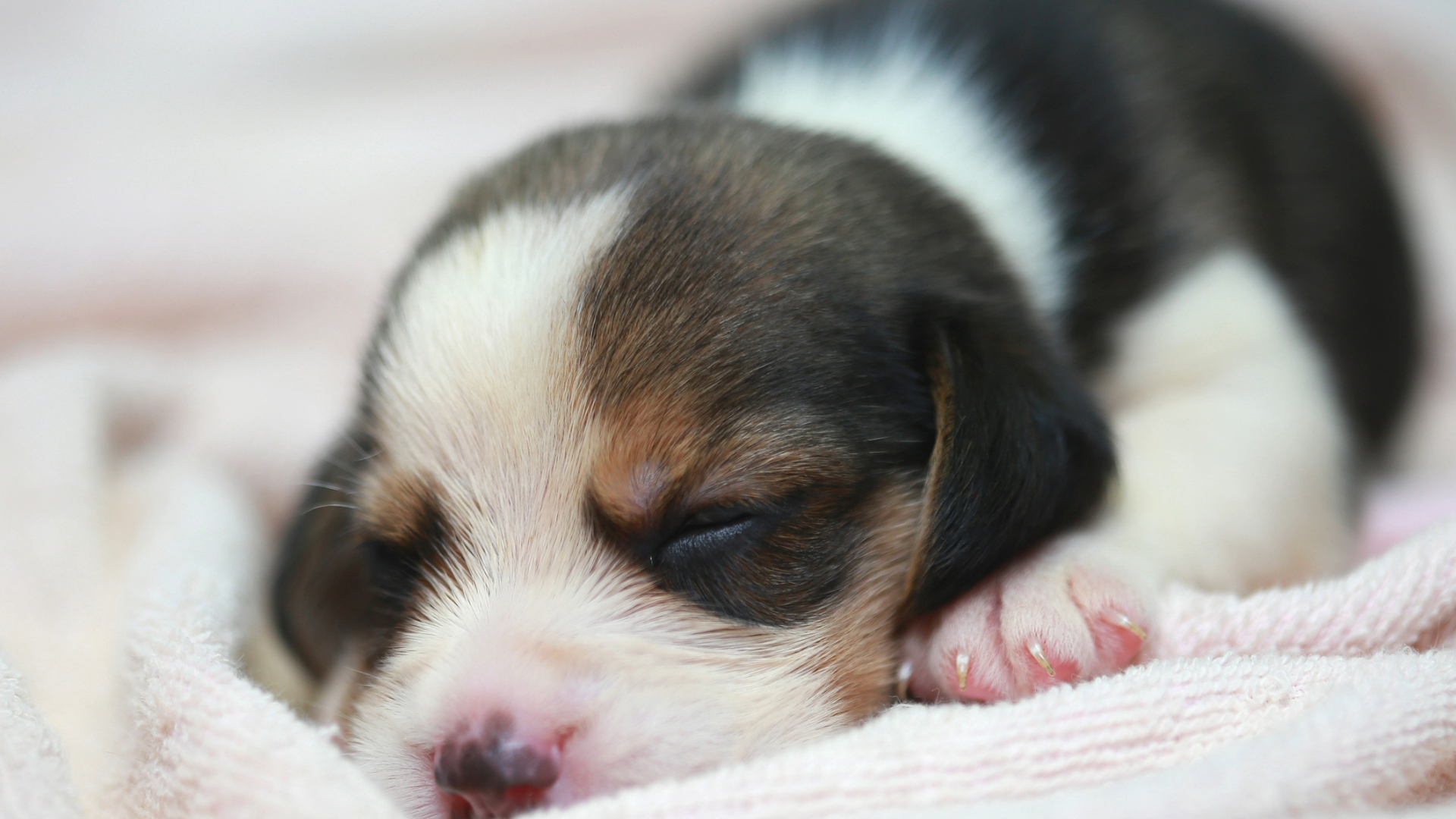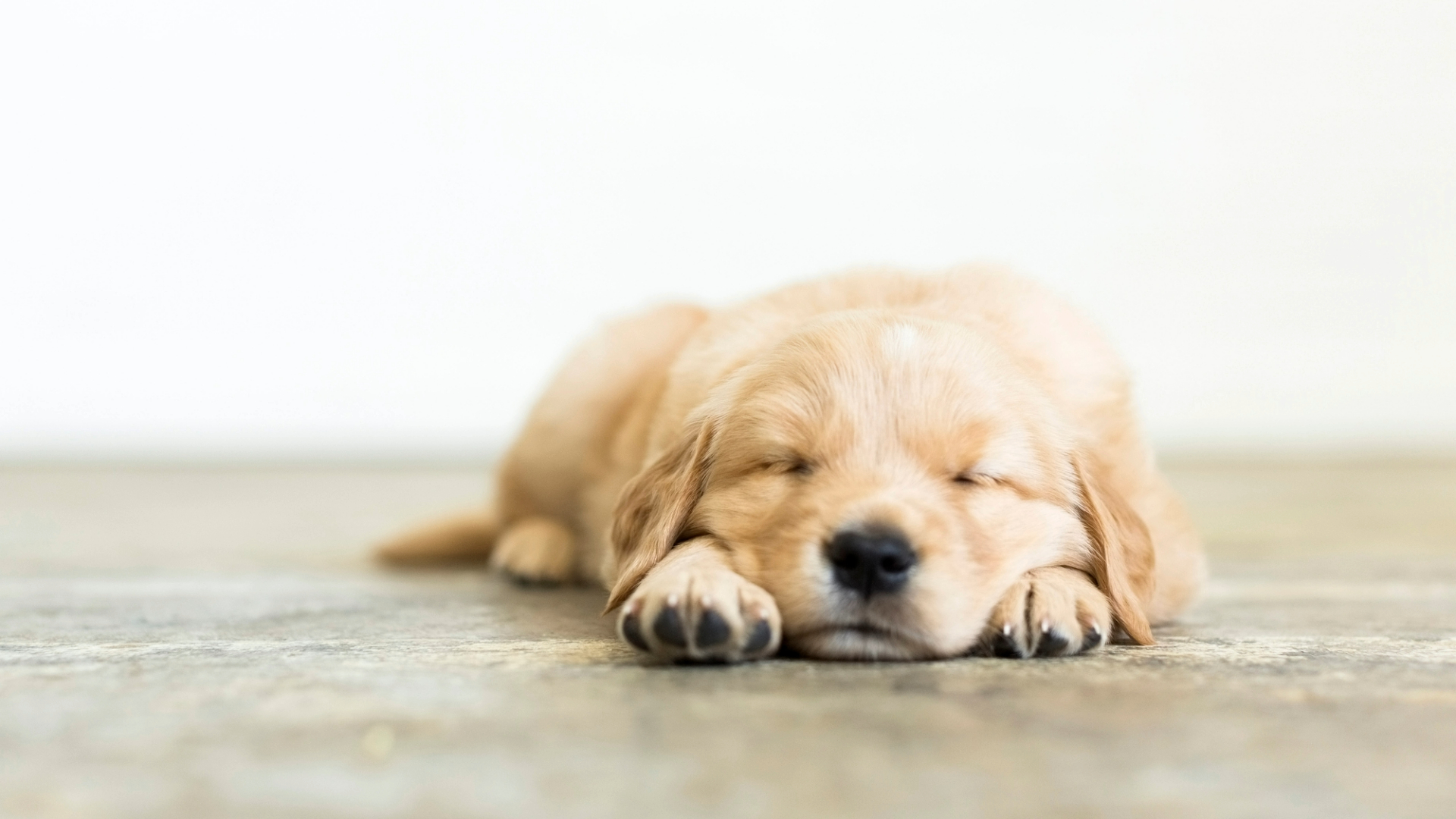Why is my puppy sleeping a lot? Vet reveals whether it’s something you need to worry about
If you’ve noticed your puppy sleeping a lot, here’s how to tell if they’re sick or just tired.

As you welcome a new fur baby into your life, you might have the question, ‘Why is my puppy sleeping a lot?’ A snoozing pup is the cutest thing ever, but if they’re doing this all day long, you may feel a bit concerned.
On the other hand, some pups might require the best puppy sleep aids to help them drift off. If you want to learn more about what your dog’s sleeping habits mean, keep on reading.
How much sleep does a puppy need, you ask? It might come as a surprise but puppies need around 16 hours of sleep a day (two hours more than an adult dog). This might sound a little excessive but this is all to help with their growth and development. However, if your dog is sleeping more than usual, it might be a sign of an illness that’s making them feel lethargic.
It might be hard to spot the difference between lethargy and just normal sleep, but we’re here to help you. That way, you can take your pup to the vet right away if you think there’s something wrong with them.
How much sleep does a puppy need?
Like human infants, puppies need more sleep than adult dogs do. Adult dogs sleep about 10-14 hours a day depending on factors such as age and activity level. Puppies need even more sleep, averaging about 16 hours of sleep a day, with very young puppies sleeping as much as 20 hours a day! Dogs and puppies that don’t get enough sleep can become sleep deprived, just like humans do. This can lead to behavior issues like irritability, aggression, and frustration. After all, we can all get a little touchy when we don’t get our recommended amount of shut eye.
Why is my puppy sleeping more?
It’s normal for puppies to sleep a lot, but what if your puppy is sleeping more than his normal amount? This can occur due to a change in your puppy’s activity level. If your puppy had a big romp in the park or a stressful visit to the veterinary clinic, he may sleep the rest of the day or even sleep more than usual the next day as well. Your puppy may also sleep more than usual if there has been a disruption to his normal sleep schedule, such as getting to bed later at night or having more people at home during the day when he usually naps. This can make your puppy sleep more during the hours when he is able to get some uninterrupted rest.

Is my puppy sick or just tired?
Unfortunately, some causes of sleeping more aren’t so benign. Many illnesses can cause lethargy, which can result in your puppy sleeping more. This is usually more than just being a little tired. Your puppy will also have a decreased energy level and may be reluctant to participate in his normal routine. He may play less or not at all, and may fatigue more quickly on walks. Your puppy may also show other symptoms of illness such as changes in appetite, changes in urination and defecation habits, vomiting or diarrhea, or other changes in health and behavior. If you suspect your puppy is lethargic, or you notice any other changes in your puppy’s health, see a vet for an evaluation.
Get the best advice, tips and top tech for your beloved Pets
What age should a puppy sleep through the night?
By the time they’re ready to go home to their new families – around 8 weeks of age – most puppies are capable of sleeping through the night. Some small breed dogs may need an additional potty break during the night at first. By 16 weeks of age, all puppies should be able to sleep through the night. If your puppy still needs to go out during the night past this age, or if your puppy is having accidents during the night, this could be due to habit, poor crate training, or due to a medical issue such as a urinary tract infection.

How to make sure your puppy sleeps through the night
Just as good sleep hygiene is important to ensure humans get a good night’s rest, it’s also important for puppies, too! How to get a puppy to sleep through the night is a common query amongst pet parents and the first step is to make sure your puppy has an appropriate sleeping area. This should be a place that is dark and quiet, away from high traffic areas of the house. Your puppy’s sleeping area should include some comfortable bedding for your pup to settle down in. You can even add some white noise or some soothing music if you like – check out Through a Dog’s Ear for music specifically composed to calm and soothe our canine companions.
Establishing a bedtime routine can help get your puppy settled and ready to sleep at night. Limit play as bed time approaches so that your puppy will not be excited and “amped up” when it’s time to settle into bed. Be sure to take your puppy out for a final potty break right before bed so he has the opportunity to empty his bladder before settling in for the night. Giving your puppy a special treat or a favorite plush toy at the same time each evening can also serve as a cue that it’s time to go to bed.
Using a crate is also an excellent way to encourage your puppy to settle down and sleep at night. If you do decide to use a crate, first make sure you choose one that is the appropriate size for your puppy. An appropriately sized crate should be large enough for your puppy to stand up to his full height and turn around in a circle, but no larger. A crate that is too large will encourage crate soiling, because your puppy will be able to urinate and defecate in one area of the crate and sleep in another. An appropriately sized crate will encourage your puppy to hold his urine and feces until he is let out of the crate.
If you’ve purchased a crate that is too large for your puppy, you can section off a smaller area using sheets of cardboard or solid plastic until your puppy grows into the crate. In addition to using a crate that is correctly sized for your puppy, make sure you are also taking the time to crate train your puppy. The crate should always be a positive experience for your puppy and good training will ensure your puppy feels safe and comfortable in the crate. For help with crate training, check out this excellent guide from Dr. Sophia Yin. You can also take a look at our guide to how to crate train a dogfor more helpful tips and tricks.
Frisco Pillow Cat & Dog Bed with Removable Cover
Your pup is going to love this soft and cozy dog bed. Not only is it stuffed with shredded foam for ultimate comfort, but its spacious design will allow them to spread out as much as they like. You’re going to love it too, as the removable cover makes it super easy to wash.
Puppies need a LOT of sleep!
In general, it is normal for your puppy to sleep a lot – as much as 16-20 hours a day, especially in very young puppies. However if your puppy is sleeping more than is usual for him and this change is accompanied by other symptoms, such as a reluctance to participate in daily activities or other changes in health and behavior, then this can be a sign of illness. If you suspect something may be wrong with your puppy, always see your vet right away for further advice and care.
Want more puppy content like this? Here’s how to tire out a puppy and how to stop your puppy crying at night. If your pup isn’t moving as much as they should, read our vet’s guide on fading puppy syndrome.
Dr. Elizabeth Racine is a small animal general practice vet covering all things pet health and wellness. Her special interests include veterinary behavior, nutrition, and internal medicine.
As a freelance writer, Dr. Racine has written content for major companies in the industry such as the American Kennel Club, Merck Animal Health, Bayer PetBasics, Elanco, and CareCredit. In her free time, Dr. Racine enjoys playing trampoline dodgeball, hiking with her beagle Dasher, and spending time with her three mischievous cats.


